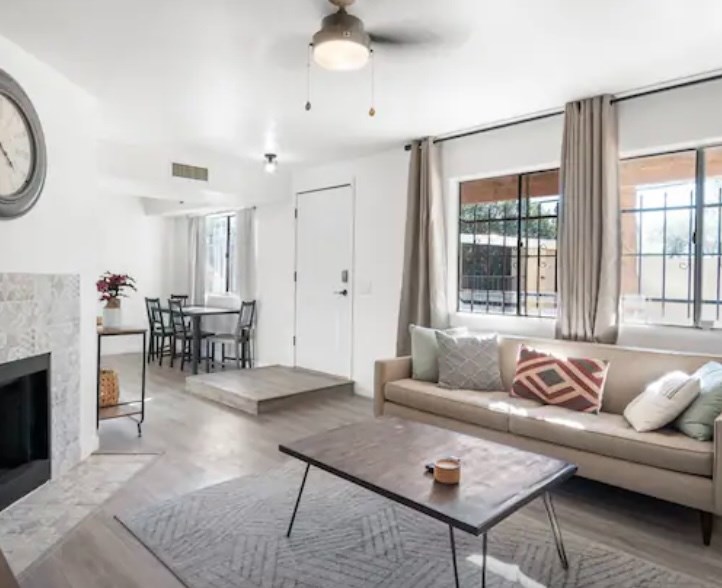Things to Consider When Renting Your Home Short-Term
If you are considering renting out your home as a side business, remember to do your research. It’s not enough to decide and list it on websites like Airbnb. Consult an attorney about the legal implications and do your homework regarding demand in your area, pricing, laws, taxes and insurance.
Online home sharing, such as Airbnb, VRBO, and HomeAway, has become increasingly popular for hosts and travelers. According to a recent study by Roofstock, a real estate investment marketplace, approximately 10.6 million people in the United States are making money from more than 17 million rental properties. And according to Statista, there will be 64.7 million home-sharing users in 2022 and over 68 million in 2023.
Although it can be very attractive for the owner to obtain additional income, there are risks associated with renting your house to strangers. Knowing about these risks and responsibilities before you get started can save you a lot of headaches and future expenses.
Here is a list of four things to consider before renting your home:
Follow city, county and state regulations. When considering home sharing, it’s important to understand the laws in your city, county, and state. For example, in Phoenix, tenants must be registered with the City of Phoenix, and all residential rental units—including vacation and short-term rentals—must be registered with Maricopa County. It’s also important to consider your contracts with leases, condo boards, mortgage lenders, HOAs, etc. There may be limitations you should be aware of.
Be aware of tax implications. As a tenant, you will have to pay taxes on your income, but you will also be able to deduct certain expenses related to your rental. It is also important to understand the different taxes that apply when renting your home. Phoenix assesses a sales tax on real estate rentals and a transient lodging tax for stays less than 30 days. Consulting a tax professional is always a good idea.
Check your insurance. Before you put your home up for rent, you need to make sure you have the proper insurance coverage. Most homeowners assume they have coverage under their home insurance policy, but that may not be the case. Websites like Airbnb offer some property protection to hosts against property damage caused by a guest, but do not include liability insurance. You may need to invest in an umbrella insurance policy that will cover losses due to injury, loss of property, or damage to your home. If you rent your home with Airbnb, HomeAway, VRBO or similar, you will need landlord protection insurance or vacation rental insurance.
Know what you’re getting into. Renting your home for the short term can be a big responsibility. In addition to the risks mentioned above, a tenant must also consider the additional expenses that will result, such as stocking the home with all the necessities like towels, kitchen essentials, toilet paper, etc. normal utility bills. Additionally, Airbnb, for example, charges hosts 3% per booking. And, of course, don’t have anything in the house that you would be heartbroken if damaged.
If you are considering renting out your home as a side business, remember to do your research. It’s not enough to decide and list it on websites like Airbnb. Consult an attorney about the legal implications and do your homework regarding demand in your area, pricing, laws, taxes and insurance. Good rental!
Levi Claridge is a member of Cavanagh Law Firm and represents clients in commercial, transportation, insurance defense and product liability litigation.


Comments are closed.